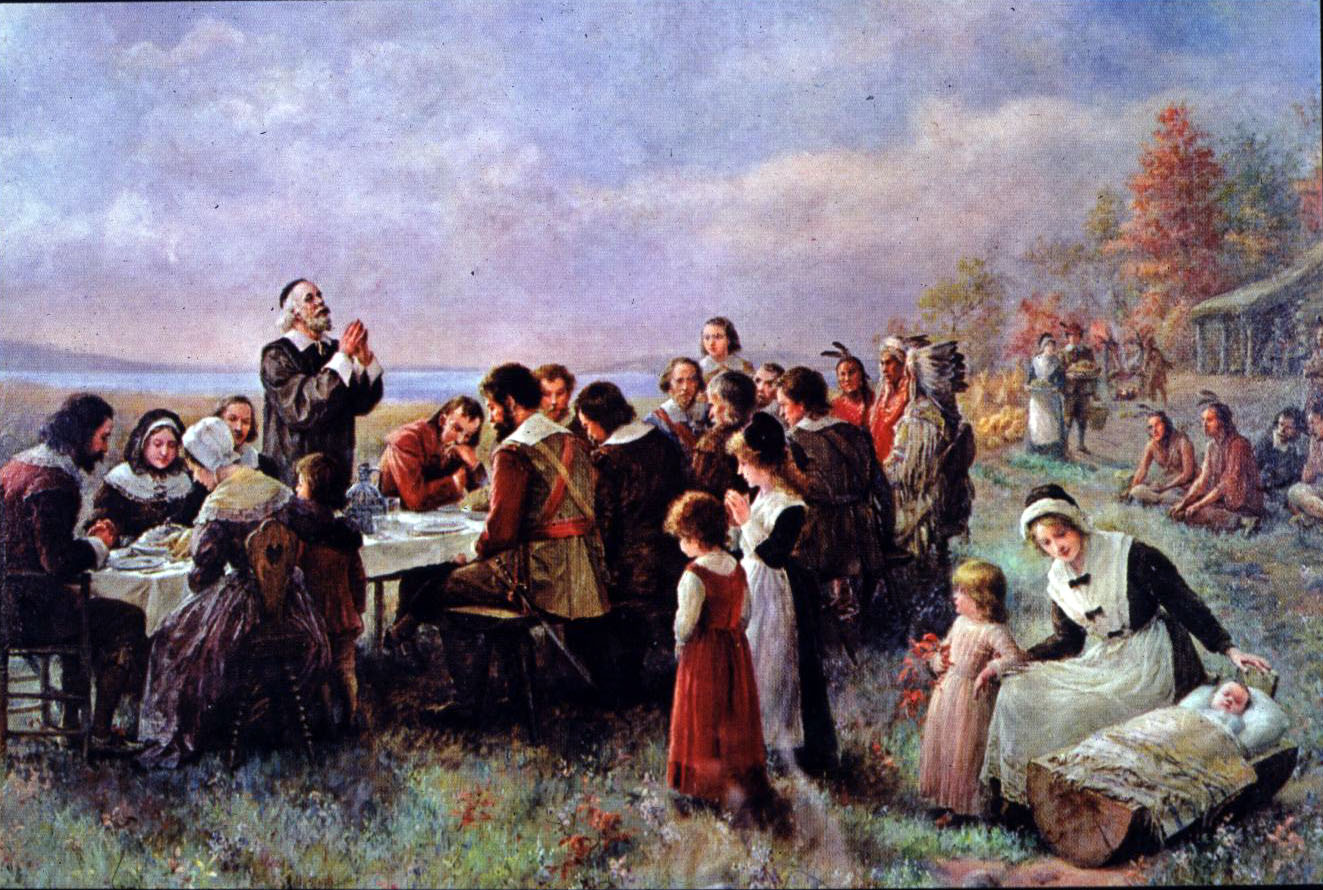 This week at ITPL, the American history podcast, we examine the history behind the first Thanksgiving in 1621. In particular, we look at a little-known event that preceded the arrival of the Pilgrims in Massachusetts. It was an epidemic that raged across southern New England for four years, beginning in 1616. The disease came from European traders and it devastated the Native American population of southern New England. And as a result, this epidemic helped pave the way for the success of the European migrants who would soon begin arriving in the region, starting with the Pilgrims in 1620. We’ll explore the origins of the epidemic and how it reshaped the political and military landscape of southern New England – and in so doing, set the stage for an event that brought English settlers and local Wampanoag Indians together for a feast — the first Thanksgiving celebration in 1621. Then I’ll close out this episode with a fun piece on trivia related to the history of Thanksgiving.
This week at ITPL, the American history podcast, we examine the history behind the first Thanksgiving in 1621. In particular, we look at a little-known event that preceded the arrival of the Pilgrims in Massachusetts. It was an epidemic that raged across southern New England for four years, beginning in 1616. The disease came from European traders and it devastated the Native American population of southern New England. And as a result, this epidemic helped pave the way for the success of the European migrants who would soon begin arriving in the region, starting with the Pilgrims in 1620. We’ll explore the origins of the epidemic and how it reshaped the political and military landscape of southern New England – and in so doing, set the stage for an event that brought English settlers and local Wampanoag Indians together for a feast — the first Thanksgiving celebration in 1621. Then I’ll close out this episode with a fun piece on trivia related to the history of Thanksgiving.
 Among the many things discussed in this episode:
Among the many things discussed in this episode:
The origins of the Great Epidemic of 1616.
Why Native peoples in the Americas were so vulnerable to European diseases like small pox and plague.
How early English explorers and settlers found evidence of the impact of the Great Epidemic in abandoned Indian settlements and farms.
How the devastating impact of the Great Epidemic on the Wampanoag tribe led them to seek an alliance and peace treaty with the Pilgrims, a move that explains why some of them attended the first Thanksgiving in 1621.
Why the turkey is called a turkey.
How President Franklin D Roosevelt triggered a Thanksgiving controversy by moving the holiday to the third Thursday in November.
How 19th century artists created the popular – and largely false – image of the Pilgrims as people who wore black clothes and funny hats, and who hated fun.
Further Reading
F. Cook, “The Significance of Disease in the Extinction of the New England Indians,” Human Biology (1973) 45: 485–508.
John S. Marr and John T. Cathey, “New Hypothesis for Cause of Epidemic among Native Americans, New England, 1616–1619” Emerging Infectious Disease (Feb 2000) http://wwwnc.cdc.gov/eid/article/16/2/09-0276.htm
William Cronon, Changes in the Land: Indians, Colonists and the Ecology of New England (New York: Hill & Wang; 1983).
Donald R. Hopkins, The Greatest Killer: Smallpox in History (University of Chicago Press, 2002).
Charles C. Mann, 1491: New Revelations of the Americas Before Columbus (Knopf, 2005)
Charles C. Mann, 1493: Uncovering the New World Columbus Created (Knopf, 2011)
George Rosen, “Epidemics in Colonial America,” American Journal of Public Health and the Nations Health 44.2 (February 1954)
Michael Willrich, Pox: An American History (Penguin, 2011)
My piece on Black Friday
Music for This Episode
Jay Graham, ITPL Intro (JayGMusic.com)
Kevin McCleod, “Impact Moderato” (Free Music Archive)
Jon Luc Hefferman, “A Storm at Eilean Mor” (Free Music Archive)
Scott Holmes, “Happy Ukulele” (Free Music Archive)
Jon Luc Hefferman, “Winter Trek” (Free Music Archive)
The Bell, “I Am History” (Free Music Archive)
Production Credits
Executive Producer: Lulu Spencer
Technical Advisors: Holly Hunt and Jesse Anderson
Podcasting Consultant: Darrell Darnell of Pro Podcast Solutions
Photographer: John Buckingham
Graphic Designer: Maggie Cellucci
Website by: ERI Design
Legal services: Tippecanoe and Tyler Too
Social Media management: The Pony Express
Risk Assessment: Little Big Horn Associates
Growth strategies: 54 40 or Fight
© Snoring Beagle International, 2017
